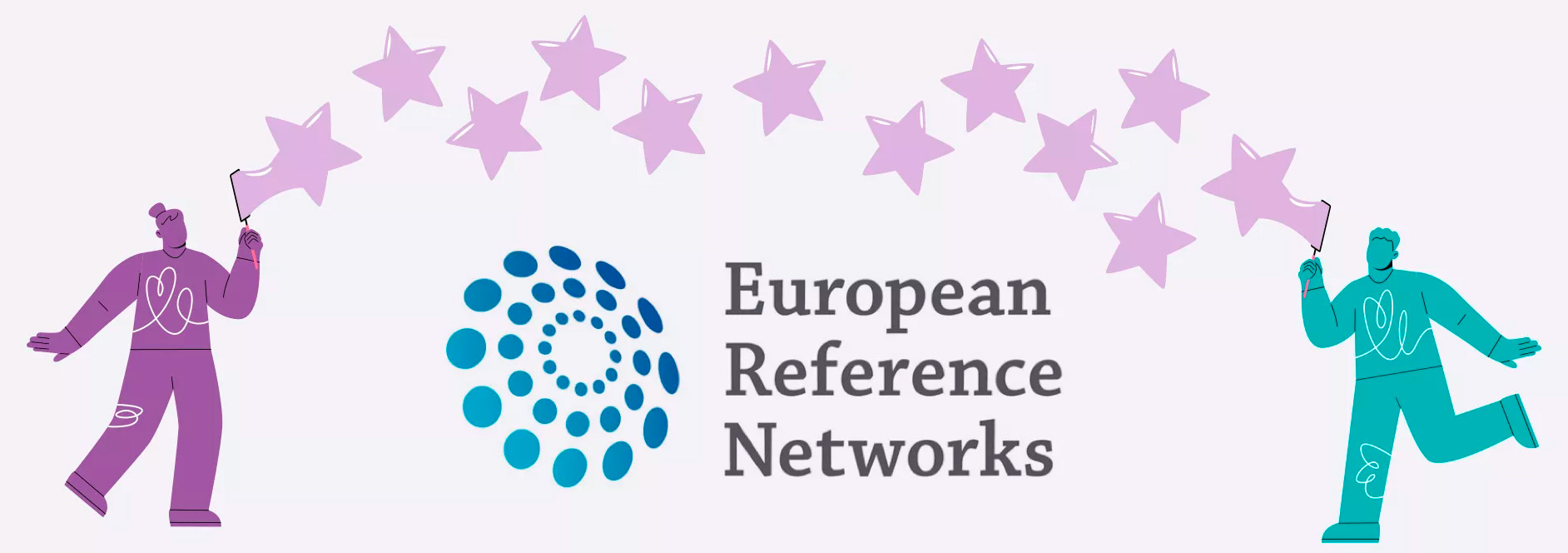Our reason: the European Reference Networks
People living with rare diseases, complex conditions or undiagnosed diseases have a long journey ahead of them
This journey is known as the ‘odyssey of diagnosis’, because of the difficulty and length of the path that many people with rare diseases and their families face in order to reach an accurate diagnosis.
The diagnostic odyssey lasts an average of four years, according to the latest Eurordis Rare Barometer. Improvement of diagnostic pathways across Europe is key, according to EURORDIS, and it considers it vitally important to promote equity and inclusion by reinforcing the role of European Reference Networks, making them more visible and accessible.
Rare diseases are a major challenge for healthcare due to the lack of knowledge and treatment options. That is why research on rare diseases has been a priority for the European Union over the past two decades, resulting in collective action to facilitate knowledge sharing and access to specialised care.
This led to initiatives such as the European Reference Networks (ERNs), which have been established since 2017.
To improve the accessibility of the ERNs for patients across Europe, the EU has funded a pioneering 3-year project involving all member states (MS) plus Norway and Ukraine, the Joint Action on Integration of ERNs into National Healthcare Systems (‘JARDIN’)
The European Reference Networks
What are the European Reference Networks (ERNs)? What is their purpose? Click and know more about the 24 ERNs
Know more-
Our mission and vision
JARDIN is a Joint Action (JA) created to achieve the integration of European Reference Networks (ERNs) into National Healthcare Systems.
JARDIN’s mission and vision are based on “Integration, equity and sustainability”. JARDIN was born with the aim to grow as a bridge between ERNs and national healthcare systems.
The vision is to put people living with rare diseases or complex conditions at the centre of care, and aims to make the care pathway clear and easily accessible, through the promotion of the work of European Reference Networks.
This Joint Action, co-funded by the European Union, is part of a commitment to improve the lives of people, to make the so-called ‘patient journey’ a little easier and more accessible. Therefore, JARDIN’s mission is to improve accessibility to European Reference Networks by integrating them into National Healthcare Systems, and to make a real impact.
-
Our objectives
JARDIN will produce recommendations, and implementation pilots in the main fields of action, such as patient pathways, national reference networks, and data management for rare diseases or complex conditions.
Activities will include identification and exchange of best practices, development of concrete recommendations, guidelines, and toolboxes suited for the needs of all Member States (taking into account the different preconditions, such as size and population, economy, and structure of the respective healthcare system), as well as support of capacity building and performing pilot implementation steps on different levels in MS in the proposed fields of action.
JARDIN will develop strategies for systematic dissemination of information on the ERNs, with a specific emphasis on people living with rare diseases as well as the healthcare professionals community.
In line with the general objective of the call in the framework of the European Union Programme for Action in the field of Health (EU4Health), area of action “Enhanced European Reference Networks”, JARDIN aims to improve the accessibility and support the longterm sustainability of the ERN system, also strengthening the resilience of the national health systems.
Our work packages
To achieve its objectives, JARDIN is organised around nine work packages, classified into four transversal and five technical work areas.
Know more CONTACT
CONTACT





